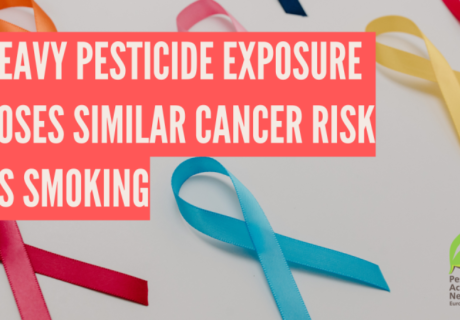Dairy giant Arla has come under fire from environmental groups over its climate commitments, with a new report from the Changing Markets Foundation and Greenpeace Nordic claiming the company is failing to take meaningful action to reduce its greenhouse gas emissions.
The report, titled Dairytales: Arla’s Smokescreen for its Lack of Climate Action, finds that Arla has not set reduction targets for key non-CO2 emissions such as methane, a significant contributor to global warming. According to Greenpeace Nordic’s estimates, Arla’s methane emissions stand at 13.4 million metric tonnes of CO2 equivalent per year—exceeding the agricultural methane emissions of the entire Netherlands (11.4 million metric tonnes CO2e/yr).
Arla’s Climate Targets Fall Short
Arla has pledged to reach net zero by 2050, but the report evaluates its plans against UN guidelines for non-state actors and finds that out of nine relevant recommendations, Arla fully meets only one. The company’s reduction strategies rely heavily on technological solutions like feed additives and biogas production from manure, many of which have yet to prove their long-term effectiveness.
The report challenges the viability of biogas as a major emissions reduction tool. It estimates that even if all manure from Arla’s farms were converted to biogas, the emissions reduction would only reach a maximum of 15%. Current reductions from biogas amount to just 2.6%, indicating that Arla’s reliance on this strategy is insufficient to meet its goals.
The findings come as Arla faces accusations of greenwashing over its sustainability claims. Despite acknowledging that methane accounts for 43% of its total emissions, the company does not provide detailed reporting or reduction targets for methane. Additionally, while Arla does not use carbon credits to offset its emissions—a recommendation it meets—critics argue that its other sustainability initiatives lack credibility.
The report also scrutinizes Arla’s investment in plant-based alternatives, pointing out that its Jörd brand accounts for only 0.3% of Arla UK’s total revenue. Compared to Arla’s 20-27% share of the UK dairy market, the company’s minimal engagement in plant-based products suggests a reluctance to transition to lower-emission food production.
Furthermore, Arla’s FarmAhead initiative, which measures farm-level carbon footprints and provides financial incentives for emission reductions, has faced criticism from small and medium-sized dairy farmers. Many argue that the program disproportionately benefits larger farms and pushes the industry towards intensification rather than true sustainability.
The report also highlights Arla’s lobbying efforts to influence EU policy on agricultural emissions and sustainability. Since 2017, Arla has made at least 24 direct interventions with the European Commission, reportedly aiming to weaken climate legislation, prevent plant-based alternatives from being included in school milk schemes, and influence biomethane policies. The findings suggest that despite presenting itself as a leader in sustainable dairy, Arla is actively working to delay meaningful industry reforms.
Public Demonstration at Arla’s Headquarters
In response to the report, representatives from the Changing Markets Foundation and Greenpeace Nordic plan to visit Arla’s headquarters in Aarhus, Denmark, on Tuesday 11th February. They will deliver the report in person, accompanied by members of the public dressed as cows and holding banners calling on Arla to take stronger action to reduce emissions.
Calls for Stronger Action
Campaigners are urging Arla to set a more ambitious methane reduction target of at least 30% by 2030 and to shift towards producing fewer but higher-quality dairy products alongside more plant-based alternatives.
“Arla has been selling us a fairytale for far too long,” said Alma Castrejon-Davila, Senior Campaigner at the Changing Markets Foundation. “This report exposes the stark contradiction between Arla’s reputation as the poster child of dairy sustainability, and the reality of its failure to develop robust plans to reduce its emissions – in particular its methane emissions.”
Greenpeace Nordic campaigner Sandra Lamborn echoed these concerns, stating, “Arla works hard to appear caring about our climate and environment, but their actions often tell a different story. Their FarmAhead tool is marketed as a sustainability model, but it pushes farmers into more intensive production, which isn’t sustainable at all. Similarly, Arla is diligently using images of cows on green pastures in their marketing, yet they haven’t officially taken sides in the debate of protecting the unique, Swedish grazing law which is threatened of being scrapped by our government.”
“The overall conclusion from the report is that Arla cares more about looking good than actually doing good for the climate. If Arla had put as much resources into the actual climate work as it does into PR and lobbying, it would probably have had a good chance of achieving its own climate goals, but sadly they are not.”





